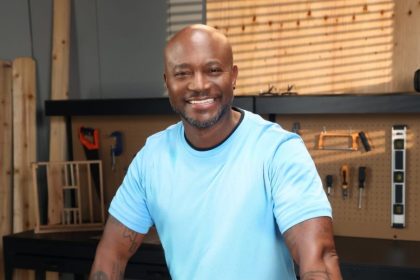Dr. Annelle Primm stands at the intersection of community service and psychiatric care, bringing decades of expertise to the critical conversation about mental health. As the Senior Medical Director at the Steve Fund and recipient of the prestigious Alexandra Symonds Award from the American Psychiatric Association, Dr. Primm has dedicated her career to promoting mental health awareness and reducing disparities in psychiatric care. Following in her father’s footsteps in medicine, she has become a pioneering voice in community psychiatry, leading initiatives through the All Healers Mental Health Alliance and advocating for culturally sensitive health care approaches. In this illuminating conversation for Health IQ, Dr. Primm shares invaluable insights on navigating mental health challenges, supporting caregivers, and addressing the unique pressures faced by Black women in today’s society.
[Editor’s note: This is a truncated transcribe of a longer video interview. Please see the video for the extended version. Some errors may occur.]
What inspired your journey into medicine, particularly psychiatry?
My father, who was a physician, inspired my path into medicine. He would take me on house calls, where I witnessed him providing medical care in people’s homes. While I briefly considered obstetrics and gynecology during medical school, I found my true calling in psychiatry because I enjoyed listening to people’s problems and helping them find solutions.
As Medical Director at the Steve Fund, what does your role entail?
Being Medical Director at the Steve Fund doesn’t mean that I actually provide medical care in that setting. I do provide medical care in other settings that are more clinical in nature, providing treatment and so forth. But at the Steve Fund, I advise and consult on the development of programs for mental health to raise awareness about mental health as an issue we should all pay attention to. It’s connected to our overall health as well as understanding the impact that stress can have on us. I also work to help reduce stigma or any hesitation that people might have around seeking help.
How should families approach conversations about mental health with loved ones?
I think it’s important that when you approach the conversation, you do it lovingly and not in a critical or negative way. Culturally, in the African American community, I’ve heard things like, “Girl, you better get yourself together,” or, “What’s wrong with you?” That sort of approach can create defensiveness. Instead, try asking, “Are you feeling okay?” or, “I’ve noticed that you’re not behaving the way you usually do. How are you feeling?” Being inquisitive in a loving, gentle, and caring way is important to avoid making the person feel uncomfortable or defensive. Approaching with love and caring is a critical first step. It would also be helpful if people read up on mental health, signs, and symptoms of mental illness, as well as where to get help.
How can someone recognize when normal stress has become something that requires professional help?
It is natural for people to have emotions when things happen that are disturbing, concerning, or create fear. Anxiety and depression are common reactions. The key is when these feelings last for more than two weeks and affect a person’s functioning—whether as a student, parent, spouse, caregiver, or employee. That’s when the alarm bell should go off. It’s time to get some help, be evaluated, and see what’s going on.
Sometimes it could be a passing thing that can be addressed with stress management or lifestyle changes, like getting more rest or balancing work. But in the mental health field, we also look for patterns of symptoms. For example, someone with depression might have a low mood, difficulty sleeping, changes in appetite, sluggishness, difficulty concentrating, or feelings of self-doubt. When clusters of symptoms appear, we consider the possibility of clinical depression, which may require treatment like psychotherapy, medication, or other approaches. Each person is unique, and treatment plans are tailored to their individual needs.
How can people navigate anxiety about aging, mortality, and grief?
As we age, it’s important to understand what’s normal in the process and focus on maintaining a healthy lifestyle. Aging naturally comes with changes, but there are steps we can take to promote our well-being and adapt to these transitions. Proper nutrition is key—eating balanced meals that provide the nutrients our bodies need to function optimally is essential. Rest is equally important; sleep allows our bodies to rejuvenate, repair, and prepare for the demands of the day. Many of us have been tempted to cut corners on sleep, but it truly is one of the pillars of good health. Regular physical activity is another critical component—simple activities like walking can greatly improve physical and mental health and even increase longevity.
Loss is an inevitable part of life, especially as we grow older and experience the passing of friends and family members. These moments can be deeply painful, but cherishing the memories of our loved ones can provide comfort. Reflecting on their voice, their presence, and the special contributions they made to our lives can help us find peace and gratitude for the time we shared with them.
What should caregivers know about managing dementia and Alzheimer’s care?
Preventing or managing conditions like dementia often starts with staying on top of chronic diseases such as hypertension, diabetes, or cardiovascular issues. These conditions can contribute to complications like mini-strokes, which may increase the risk of developing dementia. Managing these health issues proactively through regular checkups, medication adherence, and healthy lifestyle choices is essential.
Sleep is also a critical factor in brain health. During sleep, the brain undergoes vital processes of rejuvenation and waste removal, which support cognitive functioning. Chronic lack of sleep can disrupt these processes and increase the risk of developing dementia.
For caregivers, the role can be physically, mentally, and emotionally demanding. Many caregivers take on too much, often neglecting their own health and well-being in the process. This self-neglect can lead to burnout or even serious health issues. In some cases, caregivers have been known to face worse health outcomes than the individuals they are caring for.
How can Black women maintain their well-being while supporting others?
It’s a challenging reality, but it’s also a testament to the strength and resilience that Black women have carried through generations. Culturally, there has been a pattern of Black women stepping into the role of superwomen—caring for everyone, often at the expense of their own well-being. This expectation, while rooted in love and responsibility, can sometimes become overwhelming.
It’s important to remind ourselves that we cannot pour from an empty cup. While we may feel a deep cultural and personal responsibility to care for others, we must also prioritize our own health and well-being. Taking time for self-care isn’t selfish—it’s essential. Whether that’s scheduling time for rest, connecting with supportive friends, or simply saying “no” to certain demands, it’s critical to find balance.
How can women deal with disappointment and regain their sense of agency?
Disappointment is an unavoidable part of life, but it doesn’t have to define us. Mental health is partly about being able to adapt to change and cope with stress, even when life takes unexpected turns. It’s about building resilience in the face of disappointment and loss.
The first step is to allow yourself to feel those emotions. Suppressing feelings can make the situation harder to navigate. Acknowledge the pain, frustration, or sadness, but don’t let it consume you. Reflect on what happened and, if possible, find the lessons in the experience. Sometimes, disappointments are opportunities to reset, refocus, or reevaluate our paths.
Regaining agency often involves surrounding yourself with people who uplift and inspire you. Community matters, especially when disappointment makes you feel isolated. Find those who encourage you to keep pushing forward, who remind you of your worth and your ability to overcome. It’s also about taking action, even if it’s small steps at first. Whether it’s creating a new plan, setting achievable goals, or simply focusing on what you can control in the moment, action builds momentum. Lastly, don’t lose sight of hope. Disappointments are temporary, but hope gives us the strength to keep striving for better outcomes.














